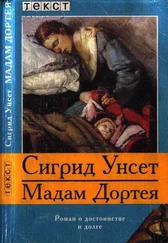His senses told him he was the only one in the house who was up. He got out of bed and dressed quickly.
Downstairs, he went first to the porch and collected the bottles. This morning the whiskey smell, though faint, made him queasy.
The moth! He searched, but it was gone.
He was waiting for the computer to boot up when he heard someone coming up the back walk. He had no idea who it might be at this hour, or why he went cold, his heart hopping like a bird from rib to rib. When the bell rang, he stayed in his chair as if welded there, terrified and ashamed of his terror at the same time. He remembered a boy in their building back in Chicago who’d answered the door while his mom was in the shower and let in a man who then—
But this was Salvation City, where people kept guns in their homes but did not always lock their doors.
“Hey, didn’t you hear me ring?”
Rather than lie Cole said simply, “Hey, dude, what’s up?”
“I was supposed to come by and get some help with this sermon I been working on. I know it’s way early.”
“You ride your bike over?”
“Yeah. Actually, I been riding around since light.”
“Why?”
“I don’t know. Just checking things out. Lotta people didn’t sleep last night, you know. They’re way freaked out.”
“What about your house?”
“I guess they’re okay.”
Like Cole, Clem was an only child. He lived with his mother and his grandmother in what had once been the town’s little red schoolhouse. His great-grandparents had been pupils there. Clem’s father had died in the Iraq war a few months before Clem was born. Clem kept his father’s army medals in a special case on his bedroom wall. He kissed the case every night before he went to bed. The Harleys also had a flu orphan living with them, an eight-year-old retarded girl named Olettra who refused to leave the house, fighting like a wild animal if you tried to make her. Everyone thought this was because she was too disabled to grasp the real reason her parents were no longer around and was scared that the monster that had got them could also get her.
Clem said, “I know some people are doing like PW said and staying home, but there’s a pretty big crowd at the church. I figure he’ll be going over there this morning. I don’t know if he’ll even have time for me.”
Cole explained that PW was not up yet. Clem nodded thoughtfully and said, “That pain just won’t let up on him, will it.”
Cole told him about the two attacks of the night before. Clem listened, frowning. Then he said, “I don’t know that drinking’s such a good idea.”
“But it really helps,” said Cole.
“In the short run, maybe. In the long run, it may turn out to be worse than the disease.”
It was this kind of thing that could make Clem seem older than he was. He often talked in this grown-up, authoritative way. Probably it had to do with the fact that his mother had never remarried and he’d always been the man of the house. A serious, level-headed, slow-if-ever-to-anger boy, precociously handy, and, like the father he never knew, a crack shot. Everyone admired him for the way he took care of his women. In general, he was more admired than liked, Cole thought. But he himself had always liked Clem, even though they didn’t have much to say to each other.
He was tall for his age, but that was his only good feature. He was pear-shaped, his skin and hair were drab, he was prone to sties and chapped lips and cold sores. Huge, blocky hands and feet made him look clumsy, though he was not—just as a sharp nose and black-button eyes made him look inquisitive, which he also was not. (In turn, his lack of curiosity often made him seem less smart than he was.)
He had a habit, sometimes irritating to Cole, of hesitating before he said anything, as if English weren’t his first language. Tracy, on the other hand, called it the mark of wisdom. (“He does like they say: Think before you speak.”)
The boys in their church were like other boys, meaning obsessed with sex. They might not have been as gross as secular kids, but they told dirty jokes and used words like boner and tits and hump and blow job . They’d huddle about a girl they thought was hot and what they’d do to her, even though they’d all pledged to stay virgins until they got married. It pained a lot of them (and a lot of girls, too) to think that Christ could return too soon, meaning before they got their chance to have sex. Meanwhile they could dream, and, at least when there were no grown-ups around, they could talk. Most would rather talk about sex than just about anything else. Except Clem. Not that he’d criticize others for talking, or leave the room when they did. He’d just sit there with a blank look on his face, as if everyone else were speaking a foreign tongue, or as if whatever they were talking about did not, and would not ever, have anything to do with him. He didn’t care—or at least he didn’t appear to—that this had led some to say he was gay.
Cole found it a mystery that Clem wanted to preach even though he wasn’t good at it. But though he knew he didn’t have anything like PW’s gift, Clem said he couldn’t imagine any other life for himself.
“Ma tells how I used to talk about being a soldier or basketball star or some other thing, but I don’t remember any of that. In my mind I was always going to be a preacher.”
Also remarkable to Cole was that Clem had never seen Jesus or been spoken to by Jesus, not even in a dream. Jesus had never woken Clem in the night with a message for him or sent him any special sign. Not that this bothered Clem. The Lord shows himself to me every day, he said. He did not envy those who’d been granted signs and visions and face time. He did not feel lesser than any rapture child or baby preacher.
Though Cole couldn’t help feeling there was something truly weird about Clem, something that didn’t necessarily have to do with his calling, the two were usually at ease together. And now that he was over his embarrassment at not having answered the door, he was glad Clem had come. His presence warmed the kitchen like something in the oven.
“Are you hungry?” asked Cole, who’d just realized he was quite hungry himself. “Do you want some breakfast?”
“Actually, that sounds good. But why don’t you let me get it? I could make us some French toast.”
“Okay. I’ll help in a minute.” And as Clem took over the kitchen, setting out bread, milk, butter, and eggs, Cole typed a message to Addy.
The French toast was perfect: eggy and crusty and on the dark side, the way Cole liked it. Clem had microwaved some bacon, too, while Cole set the table. Mindful of those still sleeping upstairs, they moved quietly and kept their voices down, and in that hush, in the soft early light, they might have been performing some ritual.
They ate in silence, full attention on their food, hungry, growing boys first.
In his message to Addy, Cole had said, “I’ve been thinking over your idea about my coming to see you.”
In fact, he had been thinking a lot about it, and the more he thought about it, the more appealing the idea became. He had always wanted to explore the world. Why not start with Berlin, Germany?
What he hadn’t said to Addy was this: “I know you care about me, but I’m not the most important thing to you. I know that even if you never saw me again, you’d be okay.”
Otherwise, he thought, she would not have left without him.
Not that he was going to hold this against her. “I’d like to make the trip as soon as possible.”
Of course, PW wouldn’t want him to go, even if it was just for a visit. Cole would have to explain—as he was going to have to explain about another decision he had just made: when summer was over, he did not want to go on studying with Tracy. Even if he had to commute all the way to a different town, even if he’d be the only kid in Salvation City not being homeschooled, he wanted to go back to regular school. He knew that Tracy and PW would blame Addy for this. But in fact: It was the day Taffy had come to pick up Starlyn. After they left, a forlorn Cole sat in front of the TV, clicking the remote until his attention was caught by images of some kids around his own age, maybe a little older. It turned out to be a news program about a special school in Washington, D.C. Not a private school—the government paid the tuition—but not a school that just anybody could go to, either. You had to compete to get in, and ninety-eight percent of those who tried to get in were rejected. Those who were accepted studied subjects that were more advanced than what kids their age normally studied. The very top students took college courses.
Читать дальше












